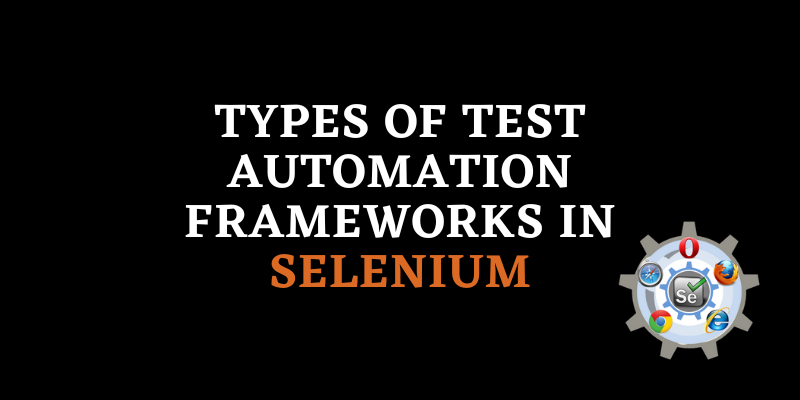Types of Test Automation Frameworks in Selenium
Introduction:
Selenium Framework is a collection of JavaScript-based automation testing tools. It can run tests directly in the target browser, interact with the appropriate web page, and rerun them without manual operation. This removes time-consuming and labour-intensive manual testing. In this bolg, we will discuss the types of test automation frameworks in Selenium. FITA Academy’s Selenium Training In Madurai aims to provide candidates with extensive knowledge and teaches them how to choose the right selenium tool.
What is Framework?
A framework is a collection of protocols, rules, standards, and guidelines that can be integrated or followed collectively to benefit from the framework’s scaffolding.
Test Automation Framework:
A “test automation framework” is a framework that keeps up to provide an execution environment for automated test scripts. The framework offers numerous advantages to the user, including the quick creation, execution, and reporting of automated test scripts. A system was created mainly to automate our tests.
A framework is a creative blend of guidelines, coding standards, concepts, processes, procedures, project hierarchies, modularity, reporting mechanisms, test data injection, etc. As a result, the user can keep to these rules when automating the application to take advantage of various production results. Also, to improve your skills in Selenium, enrol in Selenium Training In Pune, where we will learn about suitable selenium tools.
Benefits can take many forms, including ease of scripting, scalability, modularity, understandability, process definition, reusability, cost, and maintainability. As a result, developers are urged to use one or more of them to get these benefits.
Types of Test Automation Framework:
Now that we have a fundamental understanding of an automation framework, we will review the many test automation frameworks on the market. We will also shed light on their benefits and drawbacks and our recommendations for use.
There are various kinds of automation frameworks accessible today. These frameworks differ in their support for numerous essential factors for executing automation, such as reusability and simplicity of maintenance. To understand selenium concepts, you can apply for the Selenium Training In Hyderabad, which focuses on providing good knowledge and training for exception handling, Selenium IDE, RC, etc.
Module-Based Testing Framework
A block-based test framework is built on abstraction, a well-known OOPs concept. The framework partitions the “application under test” into logical and isolated parts. We write a separate and independent test script for each module. As a result, when these test scripts are combined, they form one large test script that represents more than one module.
Library Architecture Testing Framework:
The Library Architecture Testing Framework is based on a module-based testing framework with new features. We divide the application under test into functions rather than test scripts and use everyday tasks in other application parts. As a result, we create an integrated library with standard procedures for the application under test. As a result, these libraries can be called from test scripts whenever they are required.
Data-Driven Testing Framework:
When automating or testing any application, we may need to test the same function with various input data many times. As a result, embedding test data in the test script is not allowed in such cases. As a result, it is best to keep the test data in an external database separate from the test scripts. To learn more about the OOPS concepts in Selenium and gain more details about Selenium, join Selenium Training In Gurgaon.
Keyword Driven Testing Framework:
The keyword-driven test framework is an extension of the data-driven test framework that not only isolates the test data from the scripts but also preserves a specific set of code belonging to the test script as an external data file.
The structure is called after these groups of symbols, known as keywords. Keywords direct what actions to take in the application.
Hybrid Testing Framework:
As the name implies, a hybrid testing framework combines more than one of the frameworks discussed above. The best feature of such a system is that it may use various relational structures.
Conclusion:
The frameworks depicted above are the most commonly used in the testing community. There are other frameworks in existence as well. The Data-Driven Testing Framework would serve as the foundation for all future lessons. If you want to learn the types of test automation frameworks in Selenium, you can join Selenium Course In Kochi, which will help you understand the selenium core concepts.

